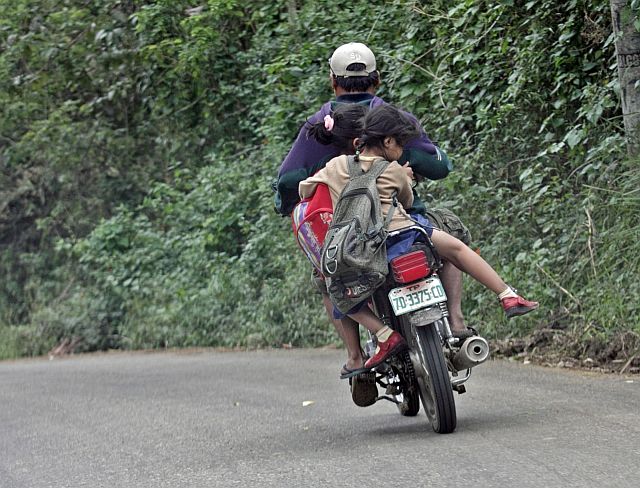CEBU CITY, Philippines—The Department of Transportation (DOTr) has denied the request of Cebu City Mayor Edgardo Labella for a reconsideration of the no-backride policy implemented as part of the measures to contain the spread of the coronavirus disease 2019 (Covid-19).
Labella, last March 25, 2020, wrote to DOTr Secretary Arthur, asking reconsideration on the no-backride policy for motorcycles.
Labella asked for the reconsideration amidst calls from the public to allow married couples or other immediate family members like offsprings or siblings ride on the back of motorcycles when going out their homes either to work or to buy needs.
Read more: Labella asks DOTr to allow families to backride on motorcycles
The agency understood that most citizens in Cebu City use motorcycles to move in and about the city, particularly in going to work and in buying their basic needs, noted Mark Steven Pastor, DOTR assistant secretary for road transport and infrastructure, in his letter to Labella dated March 27, 2020.
Pastor explained, though, that they are ‘constrained to deny this request’ as they could not grant it ‘without violating the protocols set forth’ by the Inter-Agency Task Force (IATF) for the management of infectious diseases, and the guidelines issued by DOTR and other government agencies.
He cited the continuous call of the Department of Health on the observance of the social distancing that requires at least six feet or two meters physical space between individuals as a means to prevent the spread of the coronavirus disease.
Suspension of motorcycle taxi
Because of this guideline, the DOTr ordered the suspension of the motorcycle taxi operation since social distancing between the rider and the passenger could not be observed in this type of transportation, Pastor pointed out.
Also, during virtual pressers on behalf of the IATF, Cabinet Secretary Karlo Nograles reiterated the suspension of public transportation, including the tricycles during the enhanced community quarantine. Nograles voiced IATF’s concern over the observance of social distancing in tricycles.
In fact, Pastor noted that Secretary Edgardo Año of the Department of Interior and Local Government has decided against the use of tricycles to ferry health workers. The DILG had also recommended to local government units that only one quarantine pass be given to each household while the ECQ would be in place.
Section 4(g) of Republic Act No. 11469 or the Bayanihan to Heal as One Act ensures that all LGUs are acting within the letter and spirit of all the rules, regulations and directives issued by the national government pursuant to this act, he pointed out.
The said section also requires that LGUs implement the standards of the community quarantine consistent with what the national government has laid down while allowing them to continue exercising autonomy in matters undefined by the national government or within the parameters it has set.
It also requires that LGUs fully cooperate towards ‘a unified, cohesive and orderly implementation of the national policy to address COVID-19,’ Pastor added.
“In view of the foregoing, we respectfully request for your full cooperation and adherence with the policies and directives of the National Government, in compliance with the whole government approach being implemented to prevent further or at least flatten the curve of the spread of COVID-19,” he further stated.
“We hope that this clarifies the position of the DOTr on this matter. Nonetheless you (Labella) may also seek the clarification and/or reconsideration of the DILG on this concern,” Pastor concluded. /bmjo
